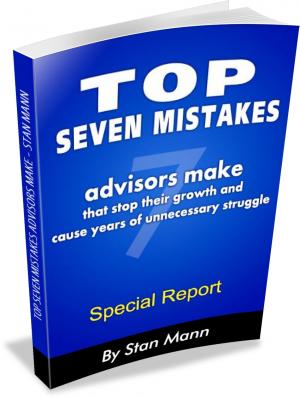How to Get the Most from Your Referral Alliances?
 When business coaching my clients, I help them get a lot of referrals
When business coaching my clients, I help them get a lot of referrals
I don’t have to tell you how great it is to get referrals. One of the strategies used is to network and form referral alliances. These are professionals who serve the same client base as you do.
For financial advisors, these would be CPAs, human resource directors, insurance agents, mutual fund wholesalers, estate planning attorneys, trust officers, and association benefits managers.
In and earlier blog, I counseled you that the best way to gain entrance with these people is to form an alliance by working together on a mutual client.
The, “Hey, I’ll give you referrals if you give me referrals,” just doesn’t work well with these professionals. You have to demonstrate your competence to help their clients. You also need to help your allied professional grow their business. Once you have established such a relationship, you can build it into a referral alliance.
Take the following key steps to get the most out of the alliance:
Share the following information with each other.
Who Are Good Prospects?
For me it would be an independent financial advisor who’s not getting enough profitable clients and wants more.
For you, your ideal prospect could be something like a top executive nearing retirement age who needs help figuring out his retirement package. You help your clients sort out their retirement options and choose those that best fit their financial goals.
How you serve.
Also include how you serve your clients. For instance, I coach my clients weekly by telephone anywhere in the world.
Yours might be that you meet with them personally within a certain radius from your office.
How You’re Different:
Since your alliance partner knows other financial advisors, you need to clarify how you are different from your competitors. I explain I’m an expert at both the outer and inner game of growing a financial practice. I know the strategies and tactics that work for financial advisors. In addition, I know how to clear my clients fears doubts, false beliefs and conflicting intentions that might be sabotaging his success. I know of no one else that is highly competent in both skills.
Yours could be, you have a deep personal understanding of your client’s culture and his special needs. For instance, you may work with cattle ranchers and farmers who want to pass their land and way of life intact to the heirs. You just happen to have been raised on a ranch and love their lifestyle. You can understand and relate to this group like no other advisor. Knowing how you stand out, helps your partner know when to choose you over some other advisor.
How to Tell If Someone Is a Prospect for You:
Lastly, teach your partner how to know if someone is a good prospect for you. For me, a good prospect is an independent financial advisor who complains of not getting enough profitable clients, or says his business has stopped growing. He might say he feels stuck, indecisive or discouraged. Or he might be an advisor who’s newly independent and hasn’t had to market his services before.
Your ideal prospect might be identified when he complains of not understanding his retirement options, or he might have recently inherited a large sum and is uncertain what to do.
Case Studies:
Have plenty of stories of how you have helped your clients. This brings your services to life. People understand and relate to stories. Use stories instead of trying to explain your process of how you work.
How to Make the Referral:
Discuss with your referral partner how you’d like to receive referrals. Don’t leave this up in the air and assume they know. You might prefer the three of you going to lunch or having coffee together. Since I do all my work virtually, I prefer email introductions.
Be prepared, your partner may not be willing to do it your way. Have them at least make sure his referral is expecting your call.
How to Follow-Up the Referral:
When you get a referral, do the referral dance; Contact new prospects ASP. Keep your refer in the loop. Let them know your progress. Reward your refer like crazy. Thank them. Send them small gifts. When you have successfully converted your prospect, encourage him to thank the refer.
This will make the refer feel good and eager to refer to you again.
There you have it. Apply this system to your referral alliances and you’ll get more and better referrals, and convert more of them into clients.
I’d love to hear your ideas about working with referral alliances. I’ll be happy to answer your questions as best I can.




 Tell a Friend
Tell a Friend Book a Meeting
Book a Meeting Contact Us
Contact Us